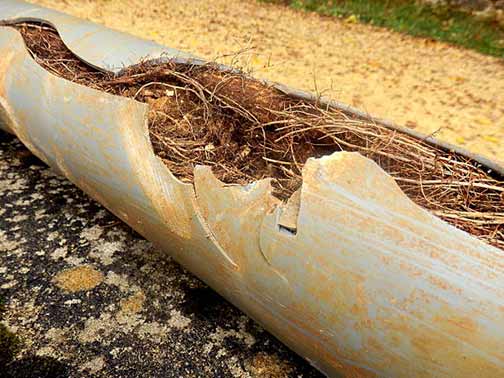
With a climate that experiences heavy rainfall and mature tree-lined streets, the risk of sewage issues in Chicago is ever-present. Therefore, residents must find ways to prevent sewage back-up. So, let’s get into some practical tips and strategies to help residents safeguard their homes against the potential havoc wreaked by sewage back-up incidents.
Regular maintenance
Regular maintenance is key in preventing plumbing issues, including when working to prevent sewage back-up. A well-maintained plumbing system guarantees that water flows smoothly and wastewater is efficiently disposed of.
Firstly, you must regularly inspect your plumbing system for visible signs of corrosion, leaks, or damage. Identifying and taking care of these issues early can prevent very costly accidents and repairs down the road.
Secondly, make it a habit to check for water pressure irregularities. Low water pressure may indicate blockages or leaks in your pipes, while high water pressure can strain your plumbing system over time. Adjust the pressure as needed to maintain a healthy system.
Don’t forget about the importance of drain maintenance, either. Regularly remove debris and hair from drains to prevent clogs. You can use drain screens to catch particles and minimize blockages, too.
Finally, consider scheduling professional plumbing maintenance at least once a year. Experienced plumbers can conduct thorough inspections, identify potential problems, and perform necessary repairs or replacements.
Proper disposal practices
Proper disposal practices are essential in maintaining a healthy plumbing system and preventing sewage back-up.
To start, avoid flushing non-biodegradable items down the toilet. Items like baby wipes, sanitary products, and paper towels can clog pipes and lead to sewage problems. Use a trash can instead.
Also, never pour grease, fats, and oils down the sink. These can all very easily solidify in your pipes, causing blockages. Instead, keep them in a container and dispose of them properly when possible.
Dispose of food scraps responsibly, too. While a garbage disposal can help, it’s not a catch-all solution. So, scrape plates into the trash before washing dishes to minimize the amount of food going down the drain.
Chemicals and harsh cleaners should also be handled with care. Avoid pouring them down drains as they can corrode pipes and harm the environment. Look for safe disposal options in your community.
Finally, be cautious with chemicals used in gardening or car maintenance. Always follow disposal guidelines to prevent groundwater contamination and damage to your plumbing system.
Install backflow prevention devices
Installing backflow prevention devices is very important for taking care of your plumbing and safeguarding your water supply from contamination. These devices make sure that wastewater doesn’t flow back into your clean water supply, preventing potential health hazards.
Backflow can occur when there’s a sudden drop in water pressure or a cross-connection between the clean water and contaminated water sources. Without proper prevention, this can lead to polluted water entering your home.
Installing backflow prevention devices is typically carried out by licensed plumbers who are well-versed in local regulations. They assess your plumbing system, identify potential cross-connection points, and determine the appropriate type of backflow preventer valve to install.
Some of the common backflow preventers are double-check valves, reduced pressure zone devices, and atmospheric vacuum breakers. You should place these devices strategically in your plumbing system to make sure that water flows in only one direction.
At the same time, you must regularly maintain and test backflow preventers to ensure they function correctly. Local authorities often require annual inspections to verify that these devices work as intended.

f you suspect root infiltration, contact a professional plumber who can diagnose and address the blockage with specialized drain cleaning tools.
Be mindful of tree roots
It might sound odd that dealing with tree roots is a key concern in preventing sewage back-up. However, in Chicago and many other areas with mature trees, tree roots can pose a significant threat to your plumbing system. Why? As a result, your underground pipes are an ideal target as the roots grow and spread. Then, once they infiltrate your pipes, they can cause blockages and damage.
To mitigate this risk, you must first locate your sewer lines and avoid planting trees too close to them. Note that tree roots can extend much farther than the tree’s height.
Then, regularly inspect your plumbing system for any signs of root intrusion, such as slow drains or gurgling noises. If you suspect root infiltration, contact a professional plumber who can diagnose and address the blockage with specialized hydro jetting service.
Consider using root barriers or chemicals designed to deter root growth near your sewer lines. These preventive measures can help protect your plumbing from potential damage caused by invasive tree roots.
Maintain proper drainage
Maintaining proper drainage is vital for the health of your plumbing system. Thus, if something’s not working right, consider hiring an emergency plumber to check things over.
Efficient drainage prevents water from accumulating around your home’s foundation, which can lead to structural damage and basement flooding. To ensure proper drainage, start by regularly inspecting and cleaning your gutters and downspouts.
Clogged gutters can also cause rainwater to overflow and seep into the foundation, potentially weakening it over time. So, ensure your gutters are free from leaves, debris, and any blockages hindering water flow.
Downspouts are meant to direct water away from your property’s foundation. Therefore, make sure they extend at least three to four feet away from the house to prevent water from pooling around the perimeter.
Yard drainage is another aspect to consider. Ensure that your yard slopes away from your home, guiding water away from the foundation. You may need to adjust the landscape to achieve proper grading or even consider having a French drain installed.
Finally, sump pumps are valuable assets for maintaining proper drainage, especially in areas prone to heavy rainfall or flooding. Regularly test your sump pump and have it serviced annually by a professional to ensure it functions when needed!
If you notice any signs of poor drainage, such as standing water in your yard or basement, investigate the issue promptly. It could indicate a problem with your drainage system that requires immediate attention.
Don’t forget to check the plumbing system before moving into a new home
If you’re considering moving to Chicago from Florida, for example, you’ll have a lot on your plate. After all, an interstate relocation requires a lot of planning and organization, which is why you should always consider hiring interstate movers. While you’ll still have to sort through all your belongings and rearrange everything at the destination, these pros can help relieve some stress.
However, with so many things to do, make sure you don’t forget to check the plumbing system before moving into your new home. Otherwise, you risk running into big issues as soon as you arrive. That, in turn, can lead to property damage and costly repairs. So, to avoid this, contact a plumbing expert in Chicago to take a look at your pipes.
Working hard to prevent sewage back-up
Our exploration of how to prevent sewage back-up in Chicago shows that proactive measures are essential in this city’s unique environmental context. By implementing the tips and strategies discussed, residents can fortify their homes against sewage-related challenges, ensuring a safer and more secure living environment. Don’t underestimate the importance of regular maintenance, proper disposal practices, backflow prevention, drainage care, and tree root awareness to keep Chicago homes free from sewage back-up woes!